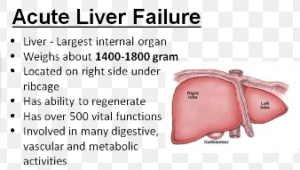
Both olive and fish oils are considered the “healthy oils” or “good fats,” but evidence shows that one of them can damage the liver.
The liver is responsible for hundreds of functions. The last thing you want is compromised liver function.
Information from University of Granada scientists states that long-term ingestion of fish oil harms the liver.
A condition called non-alcoholic steatohepatitis (NASH) can result.
NASH can pave the way for cirrhosis (even if you don’t drink) and liver cancer.
What the Study Involved
• The research was conducted on rats.
• Much comprehensive analysis was done, including pathological anatomy, bioenergy techniques and telomere length measurements.
• An intense study of the liver genome was also done.
• The full report is in the Journal of Nutritional Biochemistry (Feb. 2018).
The study showed that “fat accumulates in the liver with age, but the most striking finding is that the type of fat accumulated differs depending on the oils consumed,” states José Luis Quiles Morales, full professor of physiology at the UGR, in the report, “and this means that, regardless of this accumulation, some livers age in a healthier way than others and with a greater or lesser predisposition to certain diseases.”
The Oils that Were Studied
The scientists looked at sunflower, virgin olive and fish oil. The virgin olive oil beat out the others for liver preservation.
Sunflower oil, commonly found in processed foods, induced liver fibrosis and other liver issues.
Fish oil intensified oxidation that was associated with aging and caused additional issues.
“The alterations caused by the long-term consumption of sunflower and fish oils make the liver susceptible to non-alcoholic steatohepatitis,” says the paper.
The rats were not fed whole fish, so don’t assume that whole, unprocessed fish is bad for the liver.
Fish oil capsules are a far cry from the oil you’d get in a fresh cut of salmon or cod.
Should You Give up Fish Oil Supplements to Protect Your Liver? What About Fish Oil and Heart Health?

“The study was one of very few that showed long-term consumption can impair cellular function of the liver,” says Dr. Keith Kantor, a leading nutritionist and CEO of the Nutritional Addiction Mitigation Eating and Drinking (NAMED) program, which treats substance abuse, mental illnesses and other illnesses.
“There are several additional lifestyle factors associated with increasing your risk of non-alcoholic fatty liver disease including obesity, stress and consumption of sugar and excess starches.
“There are also several studies [e.g., Liu et al, Journal of Nutritional Biochemistry, May 2018] that show the health benefits of consuming omega-3 fish oil daily, resulting in lower risk for heart disease and inflammation.”
Two studies on fish oil with opposing results appeared in the same journal.
What should you do?
If you want your fish oil, you may want to abandon the heavily processed capsules and opt for actual fish – unprocessed, fresh from the butcher.
Of course, if you don’t like fish, this brings a conundrum to the situation.
Olive oil is best when cold-pressed and stored in a dark bottle.
It can easily be ingested in salads and added to fruit or protein smoothies without altering the taste.
For additional heart healthy oil consumption, snack on nuts instead of pretzels or chips, and add sunflower seeds and/or ground flaxseed to salads.









































